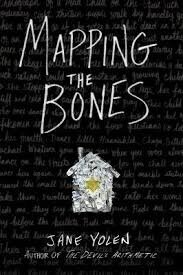Discussion Guides
I enjoy discussing stories, figuring out what makes them work—or not. When I was an elementary school parent, I volunteered as a Junior Great Books literature discussion leader after training in the Great Books’ Shared Inquiry method. In Shared Inquiry, the leader does not hold the “right” answer to any question they ask. In fact, the goal is to ask questions that have more than one answer. My kids have been out of elementary school for a long time now, but when Casper Bryant and I facilitated the Adults Who Read YA book club, we used the same approach in writing questions for our book discussions. The club met for five years at the wonderful Flintridge Bookstore (known as the Flintridge Bookstore & Coffeehouse back then). We had many a lively discussion there, a group of mostly-writers hashing out the good, the bad, and the ugly of young adult literature. These days I’m in an informal book club with family and friends.
Below, I’ll share some discussion guides, including the Adults Who Read YA guides Casper and I developed together. I’d love to hear about it if you use any of these questions for your own discussion.
MAPPING THE BONES by Jane Yolen (Philomel, 2018)
prepared for Adults Who Read YA - 1/10/2020
“Always better to pray before bad news, rather than after.” (131) The Abromowitzes are non-observant Jews, but the Resettlement and eventual “wedding invitation” lead Papa to prayer. Chaim explores his own beliefs about prayer and God throughout the story. Does the author offer a final take on religion and/or God?
The text explores different ways people face an oppressor. For example:
“We have chosen the more difficult path, that of life. Now we must walk it.” (87)
vs.
“I think any true heroes have to be crazy to do what they do…. Willingly give up their lives for their children, their friends, their country, their religion. While the rest of us fight to stay alive till our very last breath. Who is the crazy one then, my son?” (155)
Does the author offer a value judgment about the different paths in the end?
How does Gittel change in the course of the story? How about Chaim?
In what ways are poets and poetry used in the text? Why does Chaim go back and forth about the value of poetry?
“Chaim understood that the poems might never be heard by anyone but himself.… But all that mattered to him was the work in his mind. It kept him alive and sane.” (302) Does this say more about the power of art or the dignity of work?
Chaim struggles to think well of (and behave well toward) Bruno throughout the story, but by p 359, Chaim believes he and all the prisoners are becoming monstrous, aping their captors. Do you think he’s right?
What promises are made in the course of the story? Which ones are broken?
What purpose do the “Gittel Remembers” sections serve?
There are many allusions to the Hansel and Gretel folktale, including the very structure of the story. What do the allusions contribute to the telling of the story?
To whom would you (or would you not) recommend this book? Would you classify it as YA?
The Nickel Boys by Colson Whitehead (Knopf Doubleday, Anchor edition on Kindle, 2019)
Prepared for Book Club - 11/07/2020
“Plenty of boys had talked of the secret graveyard before, but as it had ever been with Nickel, no one believed them until someone else said it.” (5) Why has Elwood never come forward to talk about his time at Nickel?
“We must believe in our souls that we are somebody, that we are significant, that we are worthful, and we must walk the streets of life every day with this sense of dignity and this sense of somebody-ness.” (26 and 181) What does this quote from MLK mean to Elwood?
“Maybe there was no system at all to the violence and no one, not the keepers nor the kept, knew what happened or why.” (68)
What does the ”giant industrial fan” represent? (68)
Why do we hear the stories about poisoning Earl and about the kid who ran away but got picked up hitchhiking?
Why is the Christmas festival a big deal at Nickel?
Compare the different competitions that are part of the story: e.g. dishwashing races, boxing, the marathon, any others
How did the point-of-view shifts and time jumps affect your experience reading the story?
Did you anticipate the twist?
Is Turner right that he betrayed Elwood?
Please ignore me
After I learn how to copy page features in groups, I won’t leave so many stubs lying around!

